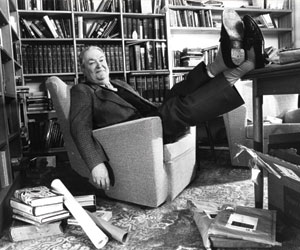The world keeps on turning, no matter what may happen to you or your loved ones. A week ago tonight I was in Smalltown, U.S.A., mourning the loss of my beloved mother, instead of New Haven, Connecticut, where I’d planned to be present at the public announcement of Long Wharf Theatre‘s 2012-13 season. I don’t usually attend such ceremonies, but this one was different, for it was in part a celebration of the news that Satchmo at the Waldorf, my first play, will be transferring directly to Long Wharf after completing its run at Shakespeare & Company in Lenox, Massachusetts.
 The production, starring John Douglas Thompson and directed by Gordon Edelstein, kicks off Long Wharf’s 2012-13 season, the first in its newly remodeled theater complex. Previews start on October 3. The show opens on October 10 and runs through November 4.
The production, starring John Douglas Thompson and directed by Gordon Edelstein, kicks off Long Wharf’s 2012-13 season, the first in its newly remodeled theater complex. Previews start on October 3. The show opens on October 10 and runs through November 4.
Regular readers of my Wall Street Journal drama column will know that I am a longtime admirer of Long Wharf (whose artistic director, not coincidentally, is Gordon Edelstein). It is a tremendous honor for Satchmo at the Waldorf to have been chosen to open the season there. It pleases me greatly that I learned about Long Wharf’s plans in time to tell my mother, who was no less pleased for me.
Here’s what I would have said had I been in New Haven:
I’d say this was a dream come true, except that I never dreamed of any such thing. To get to work with Gordon and John, and to have my show produced at Shakespeare & Company and Long Wharf Theatre, goes far beyond anything I ever imagined for Satchmo at the Waldorf. It’s like Benjy Stone says in My Favorite Year: “You don’t get years like that anymore.” Only I’m getting one–and I still can’t quite believe it.
Watch this space for further details.

 Mrs. T and I returned to New York on Friday, and on Sunday we flew to San Francisco, there to begin a two-week-long reviewing trip in California. We’ll be driving down Highway 1, seeing shows in various parts of the state.
Mrs. T and I returned to New York on Friday, and on Sunday we flew to San Francisco, there to begin a two-week-long reviewing trip in California. We’ll be driving down Highway 1, seeing shows in various parts of the state. The comparison to “Kane” is of the utmost relevance, not only because the fast-moving cross-cutting of Ms. Gaines’ staging is conspicuously cinematic but because she and Mr. McDiarmid have trimmed Shakespeare’s text as ruthlessly–and creatively–as did Orson Welles, “Kane”‘s maker, when he edited “Julius Caesar” for his 1937 Broadway production. This “Timon” has been similarly compressed and reshaped in such a way as to give it the shadowless simplicity of a fable….
The comparison to “Kane” is of the utmost relevance, not only because the fast-moving cross-cutting of Ms. Gaines’ staging is conspicuously cinematic but because she and Mr. McDiarmid have trimmed Shakespeare’s text as ruthlessly–and creatively–as did Orson Welles, “Kane”‘s maker, when he edited “Julius Caesar” for his 1937 Broadway production. This “Timon” has been similarly compressed and reshaped in such a way as to give it the shadowless simplicity of a fable…. The other novelist is Kingsley Amis, who threw critics off the scent by making the anti-hero of his first novel, “Lucky Jim” (1954), a culture-hating philistine who claimed to despise all forms of music, at one point going so far as to refer to the greatest of all classical composers as “filthy Mozart.” Needless to say, nobody who truly loathed Mozart would bother to hurl such abuse at him, and you can’t read far in “Lucky Jim” (which will be reprinted later this year by New York Review Books) without sensing that Jim knows quite a bit more about music than he’s letting on.
The other novelist is Kingsley Amis, who threw critics off the scent by making the anti-hero of his first novel, “Lucky Jim” (1954), a culture-hating philistine who claimed to despise all forms of music, at one point going so far as to refer to the greatest of all classical composers as “filthy Mozart.” Needless to say, nobody who truly loathed Mozart would bother to hurl such abuse at him, and you can’t read far in “Lucky Jim” (which will be reprinted later this year by New York Review Books) without sensing that Jim knows quite a bit more about music than he’s letting on.